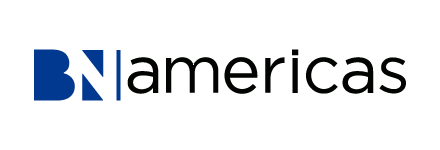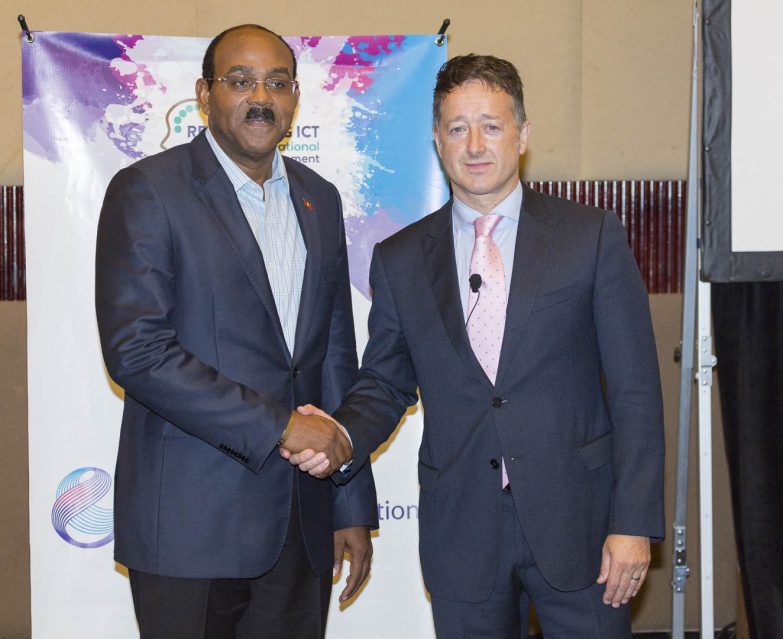CANTO Weekly Newsletter _ BNamericas
Thursday, April 5, 2018
| Cuban programmers allowed to participate in Google’s Code Jam – Cuba
Venezuela at bottom of LatAm net freedom ranking – Regional Brief: Kiwisat to offer DTH in the Caribbean – Caribbean US firm Viavi doubles down on LatAm telcos – Regional Pure Storage: weak competition a good thing – Brazil, Regional
Cuban programmers allowed to participate in Google’s Code Jam – Cuba Cuban programmers will be allowed to participate in Google’s annual Code Jam contest for the first time. “Is it a pleasure to announce that @googlecodejam will be available for Cuban contestants … for the first time the world will be able to see the abilities of Cuban scientists and programmers,” Brett Perlmutter, Google’s strategy and operations chief for the Cuban market, said via Twitter. The US Embassy added also via Twitter that the deadline for joining the contest, which has been described as the World Cup of coding, is Friday April 6th. The final round of this year’s edition will be held in Toronto, Canada, Google said on its website. Venezuela at bottom of LatAm net freedom ranking – Regional Venezuela became one of two Latin American countries that were assessed in 2017 where access to and use of the internet is not free. The other country was Cuba, as a cocktail of heavy financial restrictions, goverment regulations and legal uncertainty have reduced internet access while limiting information online, according to a report by advocacy group Freedom House. The 30mn Venezuelan citizens have seen the economy deteriorate under strict currency controls, high inflation and price controls, which also reduced access to internet and telecoms in recent years. Furthermore, the economic crisis has caused prices of devices to skyrocket, the report added. Freedom House bestows a rank between 0 (most free) to 100 (least free) to the countries it evaluates in its “Freedom on the Net” review, based on indicators such as obstacles to access, limits on content and violations of user rights. Venezuela fell three points in the 2017 ranking, to a score of 63/100, into “Not Free” status from “Partly Free” one year before. Blockage of ICT and social media apps count among the alleged violations commited by the government during the year that led to this result. Cuba, the other Latin American country with a “Not Free” ranking, registered 79/100. “Growing obstacles to access, arbitrary censorship, and deteriorating user rights resulted in Venezuelan internet freedom declining to “Not Free” in 2017… Venezuela’s failing economic situation has effectively limited internet access,” the report said. “Mobile penetration figures have also declined over the years, dropping from 102 percent in 2012 to 87 percent in 2016. Representatives of private mobile companies Digitel and Movistar noted how strict currency exchange controls have negatively impacted them, by restricting investment and improvements in the services they provide,” it added. The International Telecommunications Union (ITU) ranked Venezuela 86th on its 2017 ICT Development Index (IDI), of 176 countries, down from 82nd in 2016. Venezuela also climbed two spots on Symantec’s annual Internet Security Threat Report (ISTR), which assessed 157 countries including 10 in Latin America. The country was responsible for 1% of all global threats detected last year, up from 0.51% in 2016, and now ranks third in Latin America after Brazil and Mexico, the report says. Of the Latin American countries assessed in the survey, only Argentina earned a “Free” status with a score of 27/100, citing recent reforms pushed by President Mauricio Macri’s government and favorable legislative and court rulings. “The government does not regularly block or filter the internet, and issues of content removal have improved since the Argentine Supreme Court established a judicial notice and takedown system in a 2014 decision. In November 2016, a bill regulating internet intermediaries was approved by the Senate, establishing the need for a judicial order to remove online content for all cases.” Among the rest of the countries surveyed, Colombia obtained a 32/100 “Partly Free” score as “internet freedom remained constrained by persisting concerns over excessive and illegal surveillance, harsh penalties for minor copyright violations, and a climate of threats and self-censorship.” Brazil came at 33/100 with a “Partly Free” status mostly on worries about content censorship on the internet by courts regarding political candidates. Mexico joined the ranks at 39/100 on worries around allegations of government spyware on activists and human rights lawyers, while Ecuador showed up with 43/100, also “Partly Free” score, as the Freedom House worried about legal and physical threats against goverment critics. Brief: Kiwisat to offer DTH in the Caribbean – Caribbean Satellite TV provider Kiwisat is launching a new Direct-To-Home (DTH) offering in the Caribbean using the SES 10 satellite to deliver TV to consumers. Under the agreement, Kiwisat is leasing capacity on SES 10 to deliver 130 channels, including 90 HD channels. The platform mainly targets the English speaking islands but also includes three French speaking channels. As the first platform to rely on the DVB S2X and HEVC standards in the North American pay-TV market, Kiwisat offers the largest HD line-up in the Caribbean region. US firm Viavi doubles down on LatAm telcos – Regional With its solutions running mainly on back-offices, US firm Viavi is not widely known. Nonetheless, one of the company’s major focuses is test and measurement, which means supporting telecom service providers, such as pay-TV companies, mobile operators and data firms, in the monitoring and testing of their own networks. This includes Latin America’s major carriers: America Movil, Telefónica, and Brazil’s TIM and Oi. Luiz Cesar Oliveira, Viavi’s VP for the Americas region, told BNamericas that the company vows to double down on services it offers to telcos amid a context of intense clients churn – users more easily moving from one provider to another for better services – and competition – as internet-based services start to take customers away from telcos. Arguably, Viavi is equally a provider of telcos’ providers, selling technologies to companies such as Nokia and Ericsson. The scenario for operators also stretches from cost reduction and investment toward operational efficiency, which includes virtualization and cloud computing. Viavi focuses on this side of the busines with the StrataSync solution, Oliveira said, 5G Moreover, carriers need a reliable network supporting bandwidth, traffic modeling, network slicing, latency and time synchronisation features, especially in a context of greater data consumption and declining voice usage and a looming 5G world. Recently, Viavi announced a partnership with California-based Microsemi, which provides semiconductor solutions, to develop flexible optical networking technologies for 5G. Using Viavi’s ONT-600 Flex-E solution and Microsemi’s DIGI-G5 platform, the new 5G ecosystem will enable telecom service providers to build, test and deploy 5G-ready optical networks including OTUCn, Flexible OTN (FlexO) and Flexible Ethernet (FlexE) technologies, according to Viavi. In addition to partnerships, M&As are also part of the company’s strategy for inorganic growth. Last year, Viavi acquired Trilithic, which also operated in the segment of test and measurement for communication service providers and, at the beginning of 2018, it bought Cobham’s test and measurement business. Pure Storage: weak competition a good thing – Brazil, Regional US all-flash storage solutions provider Pure Storage sees the consolidations and alliances that recently occurred in the IT storage industry as favorable for its business, with effects also in Latin America. “We see a weaker competition environment, which is overall very positive for us,” said Paulo Godoy, general sales manager for Brazil, commenting on the business perspectives for the region. The executive talked to the press on the sidelines of the Gartner IT Infrastructure, Operations Management & Data Center Summit 2018, which is taking place in São Paulo through Wednesday. Godoy was referring to deals such as the acquisitions of EMC by Dell in 2015, of Sandisk by Western Digital in 2016, of Springpath by Cisco in 2017 and of Nimble Storage by HPE in the same year. Furthermore, unifications and organization restructuring took place inside the HP group. Pure Storage itself has been rumored as a potential Cisco target. However, while fewer companies – especially in the flash array sector – might be good for Pure’s business, the company is still small compared to most of its established rivals. Only in its last fiscal year Pure Storage surpassed for the first time the US$1bn revenue mark. For the full 2018 fiscal year ended March, Pure Storage sales were US$1.23bn, up 41% y-o-y. The company reports now over 4,500 clients. According to IT consultancy IDC, HPE, Dell and IBM delievered in the fourth quarter alone revenues of US$2.56bn, US$2.43bn and US$745mn, respectively. Total worldwide enterprise storage systems revenue reached US$13.6bn in Q4. “Companies like Cisco, Ariba and Red Hat, among others, took longer to reach this milestone,” argues Pure Storage LatAm president Wilson Grava, also highlighting that Pure Storage delivered profits for the first time. The company does not break down revenues per region, but Grava indicated that between 2-6% of revenues come from Latin America, a rate that according to him is “in line” with other players in the IT industry. Pure arrived in the region four years ago. Brazil is its largest market, followed by Mexico. In Latin America, it maintains offices in Brazil (Brasília, São Paulo and Rio de Janeiro), Mexico, Colombia, Chile and Puerto Rico. All of its sales are carried out by distributors and through channels. Some of these partners operating in Latin America are Logicalis, Dimension Data and Sonda. LOCAL PRODUCTION Questioned by BNamericas, Grava dismissed plans for manufacturing in Brazil. According to him, local production could reduce companies’ costs by 15% to 20%, but Pure Storage manages to compensate that apparent disadvantage and remain competitive in its commercial negotiations with clients.
The information presented and opinions expressed herein are those of the author and do not necessarily represent the views of CANTO and/or its members |


